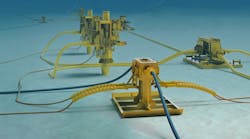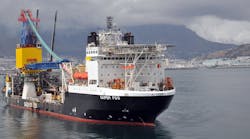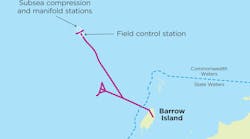Offshore staff
STAVANGER, Norway– Seabox will lead a joint industry project (JIP) with Az ACG Ltd. (the state oil company of the Azerbaijan Republic – SOCAR), Suncor, SIPCO, and two oil majors, with the support of the Research Council of Norway, aiming to advance subsea water treatment closer to full-scale field development.
Injection of sterile and ion-optimized water is expected to have a positive effect on oil production. Removal of sulphate ions from the injected water also has positive effects on applications with scaling and hydrogen sulfide challenges. This water treatment method can be expensive and requires a treatment facility on topsides.
Seabox’ previous test demonstrated that the combination of Seabox’ proprietary subsea water intake and treatment (SWIT) technology and subsea membranes could produce low-salinity and sulphate-free water for injection purposes. Based on these results and the positive feedback from industry, Seabox and several oil majors have started an extensive technology qualification process.
The company recently completed a pilot seabed test of the SWIT system in combination with a membrane process plant for sulphate and salt removal, sponsored by the industry.
The new JIP will see Seabox complete a conceptual design of a complete subsea SWIT and membranes plant capable of producing any quality water from surrounding seawater on the seabed. A key objective is to secure maximum longevity for important components in order to prolong intervention intervals.
As part of the JIP, Seabox will also identify technology components available in the market and suitable for a use in the SWIT plant. In addition to this, Seabox will conduct a gap analysis to identify and close the technology gaps on components that are not already tested and qualified to international industry standards.
The JIP is expected to be finalized in 2H 2015.
11/26/2014





